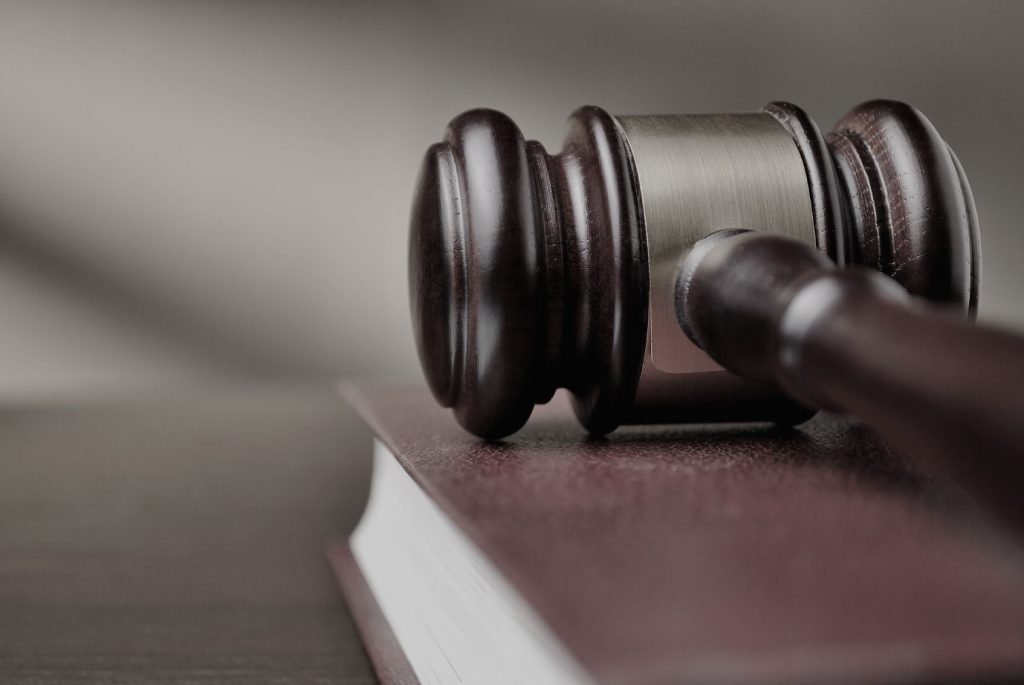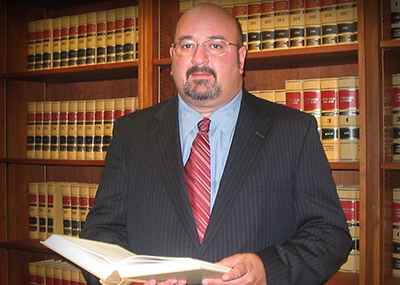If you need immediate legal action without the other party’s knowledge, an ex parte order can quickly intervene to protect your rights or ensure your safety. Learn the critical steps of obtaining an ex parte order, the conditions under which it is granted, and its temporary implications, in our concise guide.
Key Takeaways
Ex parte orders provide immediate legal relief in urgent situations without prior notice to the opposing party, commonly used in family law and domestic violence cases to address immediate dangers and prevent harm.
The process for obtaining an ex parte order involves filing a petition or motion along with supporting evidence and affidavits, with judges often making decisions on the same or next business day to ensure timely intervention.
Ex parte orders are temporary and require a subsequent full court hearing to determine their continuation or modification, offering the opposing party a chance to contest and present their side, with due consideration to due process rights.
Deciphering the Ex Parte Order: Definition and Usage
Ex parte orders serve as a vital tool in the legal world, providing immediate and temporary relief during emergencies. These legal tools are issued without notifying the opposing party, making them perfect for situations where time is of the essence.
Typically, ex parte orders are sought in family law cases, divorce proceedings, domestic violence situations, and parentage cases, where there’s an urgent need for relief.
Key Elements of an Ex Parte Order
An ex parte order is characterized by three main elements: provision of temporary relief, absence of prior notice to the opposing party, and a wide range of immediate actions to tackle urgent matters. The judge may issue a temporary ex parte order, in the case of a divorce— such as a temporary full custody or a temporary restraining order, to address these pressing issues.
These orders are issued without prior notice to the other party, granting immediate legal intervention before the other party has the opportunity to respond. This immediate action is vital in circumstances where any delay might exacerbate harm or cause irreversible damage.
Moreover, the scope of immediate actions within an ex parte order can be broad, including measures to prevent the removal of a child from the jurisdiction or to stop the destruction of property.
When Is an Ex Parte Order Appropriate?
Ex parte orders serve as the legal remedy for situations posing immediate danger that could inflict irreparable harm to an individual or property. In other words, they are the law’s equivalent of a fire extinguisher, ready to be used when the situation is too hot to handle.
For instance, an ex parte order is appropriate when there’s a risk of the opposing party removing a child from the jurisdiction, destroying property, or disposing of assets in cases such as divorce. In matters of child custody, ex parte orders are crucial when there is evidence of physical or emotional abuse, substance abuse by the other parent, or conditions that pose immediate danger to the child’s well-being. In these critical instances, ex parte orders intervene to guarantee safety until a comprehensive hearing takes place.
Initiating an Ex Parte Proceeding: The Process Explained
The initiation of an ex parte proceeding hinges on a family law case, which forms the basis for demanding an emergency order. It’s like building a house; you need a solid foundation before you can start building the walls. An attorney can play an instrumental role in this process by preparing and filing a petition or motion for an ex parte custody order, detailing the necessity for emergency relief.
And time is key here – the judge typically decides on the ex parte order on the same day the forms are submitted or by the next business day.
Documentation and Filing Requirements
To file for a temporary emergency ex parte order, one must submit a set of forms which can include a request for the order, supporting affidavits, and proposed orders for the judge to review. It’s like a riddle that the judge needs to piece together to understand the urgency of the situation.
The demonstration of an immediate need for relief due to irreparable harm, urgent danger, or other statutory reasons is crucial to the ex parte application. This is where evidence such as:
affidavits detailing the emergency
police reports indicating that the child will suffer immediate and irreparable harm without court intervention
formal evidence such as photographs and text messages
come into play.
Crafting the motion and proposed order requires careful attention and often the expertise of a family law attorney. In jurisdictions such as California, a judge can decide on an emergency order on the same day the forms are submitted, or by the next business day, providing an expedited review when necessary.
What Happens During the Ex Parte Hearing?
Just like in a movie courtroom scene, the ex parte hearing is where the judge takes the center stage. But it’s not as dramatic as the movies make it out to be. Courts often approach ex parte motions with caution because of the emphasis on due process rights as outlined in the Fifth and Fourteenth Amendments.
During an ex parte hearing, the judge evaluates the urgency and the substantial rationale for the request for an order, even without the presence of the opposing party. It’s like trying to solve a puzzle with half the pieces missing. If the judge denies the ex parte application, an immediate hearing may be ordered where both parties are required to attend. It’s a balancing act between ensuring immediate action and upholding due process rights.
After the Ex Parte Order: What Comes Next?

Following the issuance of an ex parte order, the subsequent step in this legal process is the full court hearing. This hearing, sometimes referred to as an emergency hearing, is scheduled to review and decide on the continuation or modification of the order, such as in cases of emergency custody.
It’s a chance for the other party to present their side of the story and for the judge to reassess the situation with all the pieces of the puzzle in place.
Duration and Extension of Temporary Orders
Ex parte orders, a type of court order, are intended to serve as interim measures, akin to a temporary bandage applied until a more enduring resolution is found. They last only until a full court hearing can take place, which is usually within a few weeks.
In some places like Louisiana, an ex parte custody order automatically expires after thirty days unless extended once for fifteen days upon showing good cause. A hearing with both parties present must be scheduled within a reasonable timeframe, often between 10 to 20 days, to discuss the extension or modification of the ex parte order. At the scheduled hearing, the judge will decide whether the emergency order should continue or if there are grounds for changing the temporary measures.
This initial duration and any extensions directly affect the rights and responsibilities of the parties involved until the full court hearing.
Preparing for the Full Court Hearing
As the full court hearing nears, the parties involved must prepare their defense. Enlisting an experienced attorney can provide crucial legal guidance and assistance in preparing for a full court hearing after an ex parte order has been issued.
Prior to the full court hearing, it is essential for individuals to collect any evidence and documentation related to the initial events that led to the request for an ex parte order, and to prepare to testify in detail about how the events have impacted their lives.
The full court hearing, also known as the court date, is a stage where the judge may either sign a final protection order, dismiss the petition, or choose to take additional time to decide after considering the presentations from both parties. Parties may request to advance the hearing date or to have the ex parte order dissolved or modified once it has been served, to suit the particularities of their situation.
Legal Rights and Considerations in Ex Parte Proceedings
As with any legal proceedings, specific rights and considerations are relevant during ex parte proceedings. These include the respondent’s right to contest the order and the impact of the order on child custody and support. But courts are generally hesitant to grant ex parte motions due to the constitutional right to due process, which could be violated if a party is excluded from the proceedings.
Respondent’s Right to Contest
Just because an ex parte order has been issued doesn’t mean that the other party has no say in the matter. Parties affected by an ex parte order have the right to contest it, like a player challenging a referee’s decision in a game.
To challenge an ex parte order, a party must:
File an Objection to Ex Parte Order and Motion to Rescind or Modify within 14 days of being served.
The respondent can request a hearing to present reasons why the ex parte order should be denied.
It’s their chance to present their side of the story and ensure their rights are upheld.
Impact on Child Custody and Support
Ex parte orders can cause a ripple effect, significantly affecting child custody and support. An ex parte custody order allows a parent to seek immediate custody without advance notice to the other parent if the child is in immediate danger or at risk of harm.
Temporary custody orders issued ex parte can be extended if the responding party is evading jurisdiction or hiding the child’s whereabouts. This can result in swift changes in living situations for a child and prevent a parent from taking the child out of the court’s jurisdiction. Ex parte orders may even temporarily suspend child support obligations in the event the paying parent has a significant change in financial circumstances, such as job loss.
The determination of child-related ex parte orders by the court is guided by the child’s best interests and the urgency of the situation.
Costs and Legal Assistance for Ex Parte Orders

Much like any legal procedure, filing for an ex parte order carries associated costs for the person filing. These costs may include filing fees, attorney fees, and additional expenses related to necessary documentation or evidence. However, having an attorney is crucial as they can help navigate the complex process of filing for an ex parte order and represent the applicant’s interests during the hearing.
Understanding the Filing Fee and Additional Requirements
Filing fees for ex parte orders may vary depending on the jurisdiction and the nature of the case. It’s like buying a concert ticket; the price depends on the artist and the venue. For instance, in California, the filing fee for an ex parte motion in civil, probate, and family law matters is generally $60.00.
But what if you can’t afford the filing fee? Not to worry. Fee waivers are available for individuals who cannot afford the filing fee for an ex parte order, ensuring access to justice regardless of financial status. It’s like a scholarship that ensures everyone, irrespective of their financial status, gets a fair shot at justice.
The Role of an Attorney in Ex Parte Proceedings
Understanding the complexities of ex parte proceedings can be a daunting task. That’s where the role of an attorney comes in, like a guide in a dense forest. They can provide valuable assistance in understanding the intricacies of these proceedings and help ensure the best possible outcome.
Ex parte motions or orders regarding custody, parenting time, or child support do not have standard forms and their complexity usually necessitates the assistance of a lawyer. They can help prepare the necessary documents, provide advice on presenting the case, and represent the applicant during the hearing. In this complex dance of the legal system, an attorney can be the choreographer that ensures you make the right moves.
Summary
Ex parte orders are a crucial tool in the legal system, providing immediate, temporary relief in urgent situations. From understanding their use and key elements to navigating the process of applying for one, the journey through ex parte proceedings is complex yet crucial. It’s a delicate balance between the urgency of the situation and upholding due process rights. As we’ve seen, these orders can have significant effects on child custody and support, and the costs involved can be a factor to consider. But with the right guidance and understanding, navigating this legal maze can be less daunting. Remember, if you find yourself in a situation that might require an ex parte order, don’t hesitate to seek legal assistance.
Frequently Asked Questions
What is the meaning of ex parte order?
An ex parte order is a court order issued without the other party receiving notice or an opportunity to respond. It is typically granted in emergency situations or for temporary measures until further hearings can be held.
What qualifies for emergency custody in Alabama?
In Alabama, emergency custody can be granted in cases of child abuse or when a parent is addicted to drugs or alcohol and unable to provide proper care for the child. These are commonly used grounds for emergency custody.
Why is it called ex parte?
Ex parte is a Latin term that means “on one side only; by or for one party.” It is used to describe a legal situation where the judge listens to only one party, often without the involvement of the other party. This term originates from Latin and underscores the sole consideration of one party in the legal process.
How do I initiate an ex parte proceeding?
To initiate an ex parte proceeding, you need to have or open a new family law case and request an emergency order through a petition or motion outlining the need for urgent relief. Consider seeking assistance from an attorney to navigate the process effectively.
What happens during the ex parte hearing?
During an ex parte hearing, the judge evaluates the urgency and substantial reasons behind the request for an order without the other party’s presence. If denied, an immediate hearing with both parties in attendance may be scheduled.



